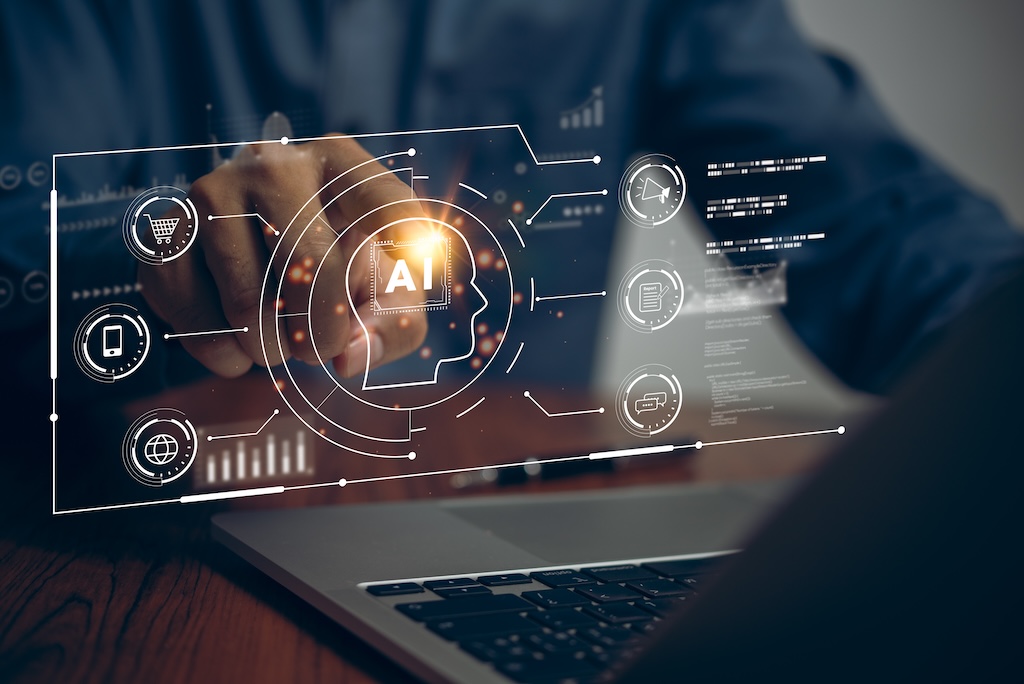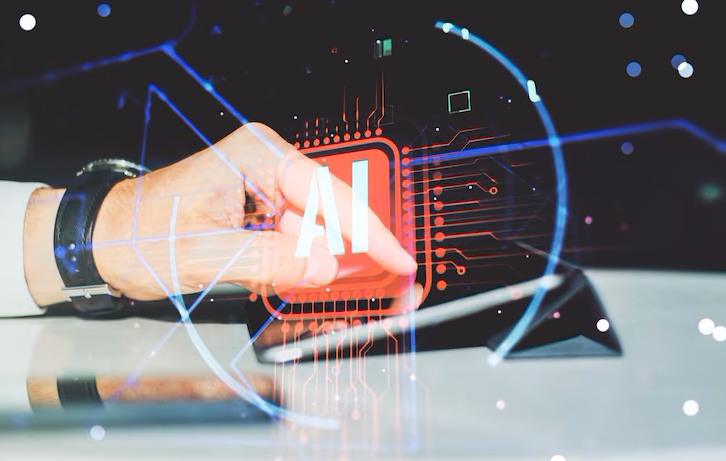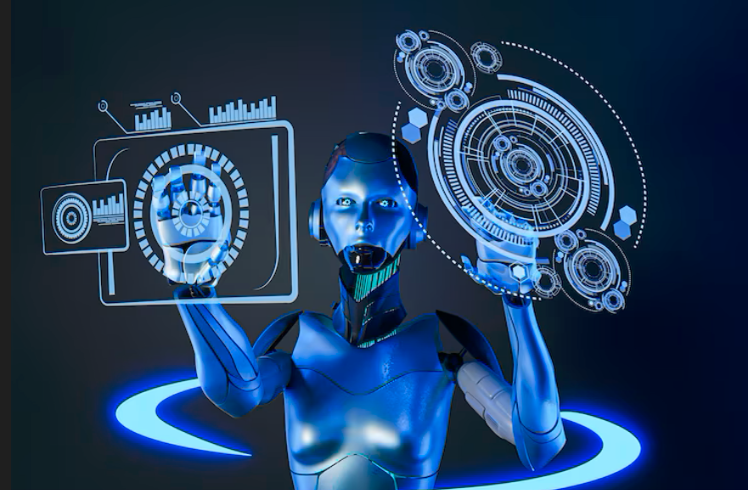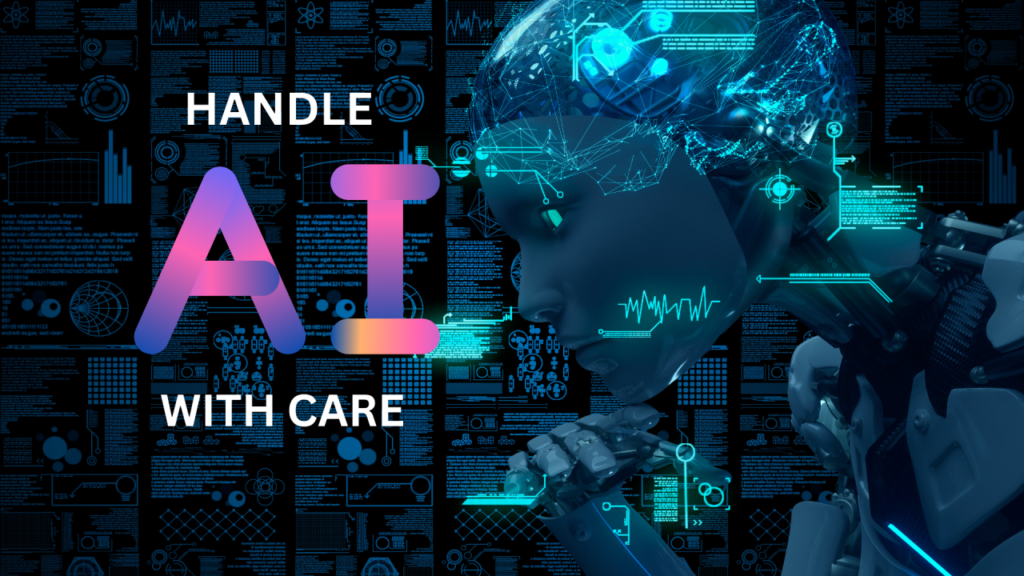Businesses are continually seeking innovative methods to captivate and maintain their customer base. Among the most revolutionary advancements reshaping the realm of lead generation is Artificial Intelligence (AI). But what specific benefits does AI offer in terms of generating leads? Let’s delve into the numerous ways how to use AI to generate leads and elevate your lead generation strategy.
Understanding AI to Generate Leads
What is AI?
AI, or Artificial Intelligence, refers to the simulation of human intelligence in machines designed to think and learn like humans. These intelligent systems can analyze data, recognize patterns, and make decisions with minimal human intervention.
How AI Transforms Lead Generation
AI transforms lead generation by automating tasks, providing insights through data analysis, and enhancing customer interactions. It can identify potential leads from vast amounts of data, predict customer behavior, and personalize marketing efforts, ensuring you target the right audience with the right message at the right time.
Benefits of Using AI to Generate Leads
- Efficiency: Automates repetitive tasks, freeing up time for strategic planning.
- Accuracy: Reduces human error in data analysis and decision-making.
- Personalization: Tailors marketing messages to individual prospects.
- Scalability: Easily handles large volumes of data and interactions.
Types of AI Technologies for Lead Generation
Machine Learning
Machine learning involves training algorithms on data sets to make predictions or decisions without explicit programming. In lead generation, it helps identify high-potential leads by analyzing past customer data.
Natural Language Processing (NLP)
NLP allows machines to understand and interpret human language. It’s crucial for chatbots, virtual assistants, and sentiment analysis in customer interactions.
Predictive Analytics
Predictive analytics uses historical data to forecast future outcomes. It can predict which leads are most likely to convert, allowing you to focus your efforts on high-value prospects.
Chatbots and Virtual Assistants
These AI-powered tools engage with website visitors, answer queries, and guide potential leads through the sales funnel, providing instant support and collecting valuable lead information.
Implementing AI in Your Lead Generation Strategy
Setting Clear Objectives
Before diving into AI, define what you aim to achieve. Whether it’s increasing lead volume, improving lead quality, or enhancing customer engagement, having clear goals will guide your AI implementation.
Identifying the Right AI Tools
Research and select AI tools that align with your objectives. There are numerous AI platforms available, each with unique features tailored for different aspects of lead generation.
Integrating AI with Existing Systems
Ensure the AI tools you choose can seamlessly integrate with your current CRM, marketing automation platforms, and other systems to create a cohesive lead generation process.
Machine Learning for Lead Scoring
Understanding Lead Scoring
Lead scoring assigns a value to each lead based on their likelihood to convert. This score is determined by analyzing various factors such as demographic information, online behavior, and engagement history.
How Machine Learning Enhances Lead Scoring
Machine learning algorithms continuously analyze data to refine and improve lead scoring models. This dynamic approach ensures more accurate predictions and better-targeted sales efforts.
Natural Language Processing for Customer Interaction
Role of NLP in Understanding Customer Intent
NLP helps machines understand and interpret the nuances of human language, enabling more natural and effective interactions with customers.
Implementing NLP in Chatbots and Email Marketing
Chatbots equipped with NLP can handle customer inquiries, provide product recommendations, and collect lead information. Similarly, NLP-enhanced email marketing can tailor content to individual recipient preferences.
Examples of NLP in Action
Consider a chatbot that uses NLP to understand customer questions and provide relevant answers. Or an email campaign where NLP analyzes recipient responses to refine and personalize future communications.
Predictive Analytics for Lead Generation
What is Predictive Analytics?
Predictive analytics involves analyzing historical data to predict future events. in AI to generate leads, it helps forecast which leads are most likely to convert based on past behaviors.
Using Predictive Analytics to Forecast Lead Behavior
By examining patterns in your data, predictive analytics can identify trends and make predictions about future lead behavior, helping you allocate resources more effectively.
Tools and Software for Predictive Analytics
There are numerous tools available for predictive analytics, such as Salesforce Einstein, HubSpot, and IBM Watson. These platforms offer powerful analytics capabilities to enhance your lead generation strategy.
Chatbots and Virtual Assistants
How Chatbots Assist in Lead Generation
Chatbots engage with website visitors, answer questions, and guide them through the sales funnel. They provide instant support, capture lead information, and qualify leads in real time.
Best Practices for Using Chatbots
- Be Clear: Clearly communicate that visitors are interacting with a bot.
- Be Helpful: Ensure the chatbot provides valuable information and assistance.
- Be Engaging: Use a conversational tone to make interactions more enjoyable.
Real-World Examples of Effective Chatbots
Consider a retail website where a chatbot assists customers in finding products, answers their questions, and helps them make purchases, leading to increased sales and customer satisfaction.
AI-Driven Content Marketing
Personalizing Content with AI
AI can analyze customer data to personalize content based on individual preferences and behaviors, making your marketing more relevant and engaging.
AI Tools for Content Creation
Tools like Grammarly and Copy.ai use AI to assist in content creation, ensuring your messages are clear, compelling, and tailored to your audience.
Measuring Content Performance with AI
AI-driven analytics tools can track and measure the performance of your content, providing insights into what works and what doesn’t, so you can continuously optimize your strategy.
Social Media and AI
Leveraging AI for Social Media Lead Generation
AI can analyze social media interactions to identify potential leads, track trends, and understand customer sentiment, helping you engage more effectively.
AI Tools for Social Media Management
Platforms like Hootsuite and Sprout Social offer AI-driven features for scheduling posts, analyzing performance, and engaging with your audience.
Email Marketing with AI
Personalizing Email Campaigns Using AI
AI can segment your email list based on customer behavior and preferences, allowing for highly personalized and effective email campaigns.
Automated Email Workflows
AI-powered tools can automate email workflows, sending the right message at the right time based on triggers like customer actions or time intervals.
SEO and AI
Enhancing SEO Strategies with AI
AI tools can analyze search patterns and optimize your content for better search engine visibility. They can suggest keywords, analyze competitors, and improve your overall SEO performance.
AI Tools for Keyword Research and Content Optimization
Platforms like SEMrush and Ahrefs use AI to identify high-value keywords, analyze their search volume, and suggest strategies to improve your content’s ranking in search engine results.
Tracking and Analyzing SEO Performance
AI-driven analytics tools provide insights into your SEO efforts, tracking key metrics like organic traffic, keyword rankings, and backlink quality to measure the success of your SEO strategy.
AI for CRM Systems

Artificial intelligence AI and CRM software automation technology.business use AI smart technology sales reports recording the sale of goods and making tax invoice. Robotic Process Automation RPA.
Integrating AI with CRM Systems
AI enhances Customer Relationship Management (CRM) systems by automating data entry, predicting customer needs, and improving overall customer satisfaction.
Benefits of AI-Enhanced CRM
By analyzing customer interactions and data, AI can provide personalized recommendations, automate follow-ups, and streamline the sales process, resulting in increased conversion rates and customer loyalty.
Popular AI-Powered CRM Solutions
CRM platforms like Salesforce CRM, Zoho CRM, and HubSpot CRM integrate AI to enhance sales and marketing efforts, offering predictive analytics, lead scoring, and personalized customer insights.
Challenges and Considerations
Potential Challenges in Implementing AI
- Data Quality: AI relies on accurate and comprehensive data for effective decision-making.
- Integration Complexity: Integrating AI with existing systems can be challenging and require technical expertise.
- Ethical Concerns: Ensuring AI usage complies with ethical standards, including data privacy and transparency.
Ethical Considerations in AI Usage
It’s essential to prioritize customer privacy and data security when implementing AI in lead generation. Transparent communication about AI usage and ensuring consent from customers are crucial steps to maintain trust.
Tips for Overcoming Challenges
- Start Small: Begin with pilot projects to test AI tools before scaling.
- Invest in Training: Provide training to employees to effectively utilize AI tools.
- Monitor Performance: Regularly evaluate AI performance and adapt strategies as needed.
Conclusion
In conclusion, leveraging AI to Generate Leads offers unparalleled opportunities to streamline processes, improve efficiency, and enhance customer experiences. From machine learning and NLP to predictive analytics and chatbots, AI technologies empower businesses to attract, engage, and convert leads more effectively than ever before. As AI continues to evolve, integrating these technologies strategically into your marketing and sales strategies will be crucial for staying competitive in the digital landscape.
FAQs
How does AI help to Generate Leads?
AI automates lead scoring, personalizes marketing messages, and predicts customer behavior, helping businesses identify and convert high-potential leads.
What are the best AI tools for lead generation?
Some popular AI tools for lead generation include Salesforce Einstein, HubSpot, and IBM Watson, each offering unique capabilities for automating and optimizing lead generation processes.
Is AI suitable for small businesses?
Yes, AI can benefit small businesses by automating tasks, improving lead quality, and enhancing customer interactions without requiring extensive resources.
What are the ethical considerations when using AI for lead generation?
Ethical considerations include data privacy, transparency in AI usage, and ensuring AI decisions do not discriminate or violate customer rights.
How can AI improve SEO strategies?
AI tools analyze search patterns, suggest optimized keywords, and track SEO performance metrics like organic traffic and keyword rankings to enhance your website’s visibility on search engines.













